SCOTUS Oral Arguments Presented March 4, 2020.
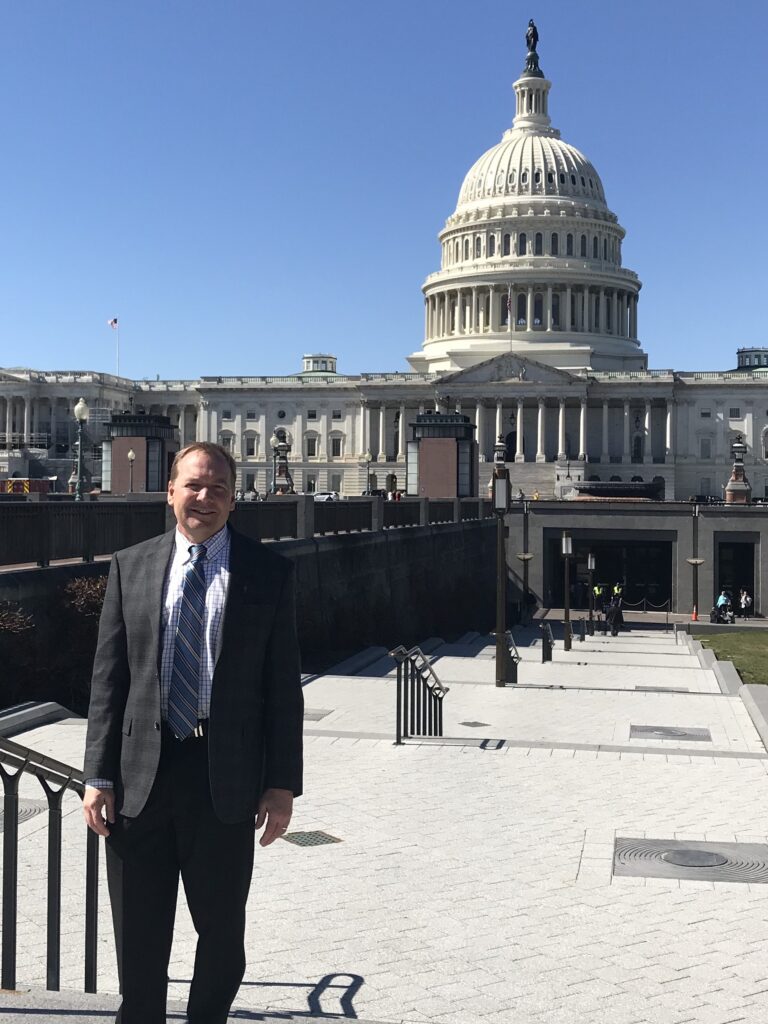
Last week my wife and I had the privilege of attending the Supreme Court hearings. Oral arguments were given for June Medical Services vs. Russo. It was a privilege and honor to witness our nation’s highest-level Judicial branch in action.
It was deeply meaningful to me as an ObGyn physician to experience the Supreme Court process. Especially during a case that involves the quality and safety of women’s healthcare. It was significant as both a husband and a father due to its connection with the sanctity of life.
Healthcare in general, and women’s healthcare in specific, should be important to us all.
Caring for All Women
Before I share my opinions on this case, let me state a few things. I believe in the sanctity of life, I am a pro-life individual, and I am a pro-life physician.
My personal pro-life perspective relates to the June Medical Services vs. Russo legal case as follows: I am adamantly against abortion. However, I acknowledge that, at this time in history, abortion is legal in our country. Despite my stance, I fully desire women who are obtaining abortions to be safe. To receive both legal and medical protection from substandard medical care.
The Louisiana Abortion Law
In 2014, the Louisiana legislature passed a law. This law required abortion providers in their state to have admitting privileges at a hospital within 30 miles of the abortion clinic.
The purpose of this law was to increase the safety of women having abortions.
The justification for passing such a law was that Louisiana had determined that several current abortion practices within their state were sub-standard. Specifically, non-qualified/undertrained practitioners were performing abortions (including an ophthalmologist and radiologist). Clinics were not meeting basic licensing safety standards. Abortion clinics were being held to a different and lower standard than other outpatient surgical centers.
Under the current situation, the abortionist had no responsibility to their patient for post-procedure complications, and the patients themselves were left alone to find a medical facility and medical provider to care for any complication they may encounter.
The goal of this Louisiana law was to ensure the competency of practitioners providing abortions and to provide some degree of continuity for the patient with their abortion provider in case a complication arises.
Medical Rationale for the Louisiana Abortion Law
As an ObGyn physician with over two decades of practice, this Louisiana law seems both elementary and very reasonable.
Complications can happen and do, in fact, happen in any procedure performed on the human body.
As a physician and surgeon, it is my responsibility to be ready and able to care for my patient in the event of a surgical complication (though let me be clear, I am personally speaking of my OB and GYN surgeries, not abortions as I am not an abortion provider).
My responsibility includes having communicated with my patient where to go in case of a post-surgical problem and having a system in place in which either myself or my prearranged physician backup system is ready, willing, and able to take care of her needs.
This very basic level of preparedness for my patients does not only apply to me but applies to any physician who is operating on patients in either a hospital setting in an outpatient surgical center or even simply performing an office surgical procedure.
Should not this same expectation be required of the medical provider who has chosen to offer and perform abortions?
A Political Agenda Which Puts Women At Risk
The Louisiana law, however, is being fought by the abortion industry as interfering with a woman’s abortion rights by placing an “undue burden” on a woman’s ability to find a provider and clinic able to abort her pregnancy.
This case made it to the Fifth U.S. Circuit Court of Appeals in New Orleans, where it was upheld as constitutional. The abortion industry then appealed to the Supreme Court, bringing us to the oral arguments presented on March 4, 2020.
It’s fascinating that, despite the law in Louisiana aiming to protect women seeking and obtaining abortions, the abortion industry objects to it. They seem to overlook the fact that access to “safe abortions” was a fundamental argument in the original case for legalizing and protecting abortion rights.
Looking back at my original review of this case, I now understand that I had oversimplified my thought process by believing this Louisiana statute was a “no-brainer law” that would easily pass not just the Louisiana court system but would also be readily defended by justices of the Supreme Court. I wish this were the case.
At the time of this writing, the Supreme Court has not announced its decision. I am continuing to pray, along with others, that we prioritize the safety of these women over accepting reasonable restrictions on the surgical procedure of abortion. I know there is a significant possibility that this law may overturn in the name of prioritizing “the right to abortion” over the safety of the women choosing to undergo it.
The Louisiana Abortion Law Is Not Anti-Abortion
Those of you who know me, or have read my previous writings on RHA, know that I am an individual and a physician who believes in protecting and valuing all life, including the lives of babies in utero.
That being said, I personally do not see this Louisiana law as being an anti-abortion law; it is simply a law designed to subject the abortion industry to the same quality and safety measures and regulations that apply to the rest of us surgeons in the medical field.
And yet it would be ignorant of me to ignore or choose not to understand the “why” that motivates the abortion industry to so adamantly fight this law, in spite of the very reasonable and logical nature of the statute’s requirements.
The reality is that the abortion industry has chosen to fight tooth and nail against any and all governance or restrictions to what they consider the sacred right to abortion. This mentality has led to this case before the Supreme Court as well as to the passing of laws such as the RHA.
Both the legal system of our country and the medical establishment of our country need to step back and truly consider medical and logical reasonableness in our debate on abortion rights.
Protecting Patients Is A Reasonable Expectation
It is, in fact, reasonable for women to expect there to be a system in place ready to take care of their abortion complications if complications were to develop.
It is, in fact, reasonable for the patients, as well as the local medical systems, to expect the abortion provider to be the one medically responsible for caring for their patients in the event that complications develop.
Even in the minds and decision-making of pro-abortion advocates, they should not hold the sacred idol of abortion rights in higher regard than the safety of the patient.
Both Sides Need Intellectual Integrity
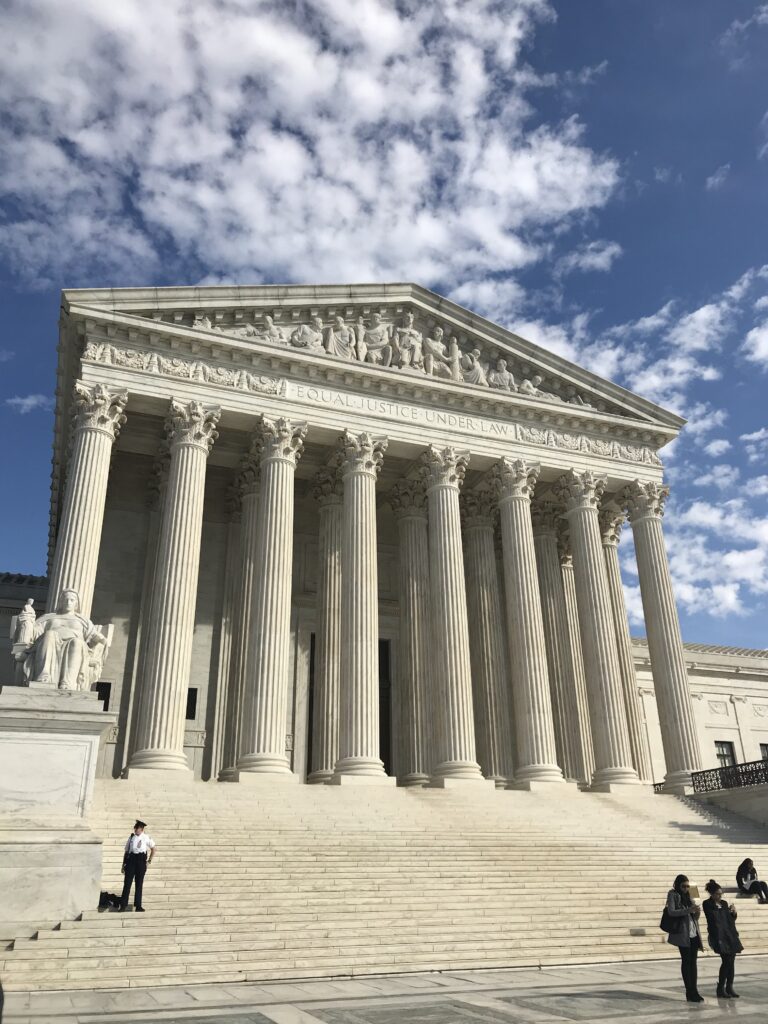
In my opinion, both sides of this debate need to commit to intellectual integrity.
Pro-abortionists need to recognize the need to demand safety from their abortion providers and clinics, even though this may require accepting some legal restrictions to abortions.
Pro-life advocates need to admit that part of their celebration, IF the Supreme Court justices uphold this law, will be due to the legal precedent set that allows states to have different abortion restrictions; and admit this celebration is related but, in fact, separate from simply protecting the health of women in Louisiana who are aborting.
Neither the pro-abortion fear of any and all abortion restrictions nor the pro-life goal to pursue restrictions negates the reality that the women of Louisiana deserve legal protection for their safety.
Intellectual integrity and openness on both sides may allow the two opposing parties to put aside our differences in the few areas we actually do share common goals, which in this case is protecting women in Louisiana who, under conditions prior to this law, were not receiving the quality care they deserve.
Both Sides Need To Stop the Rage In Areas Of Agreement
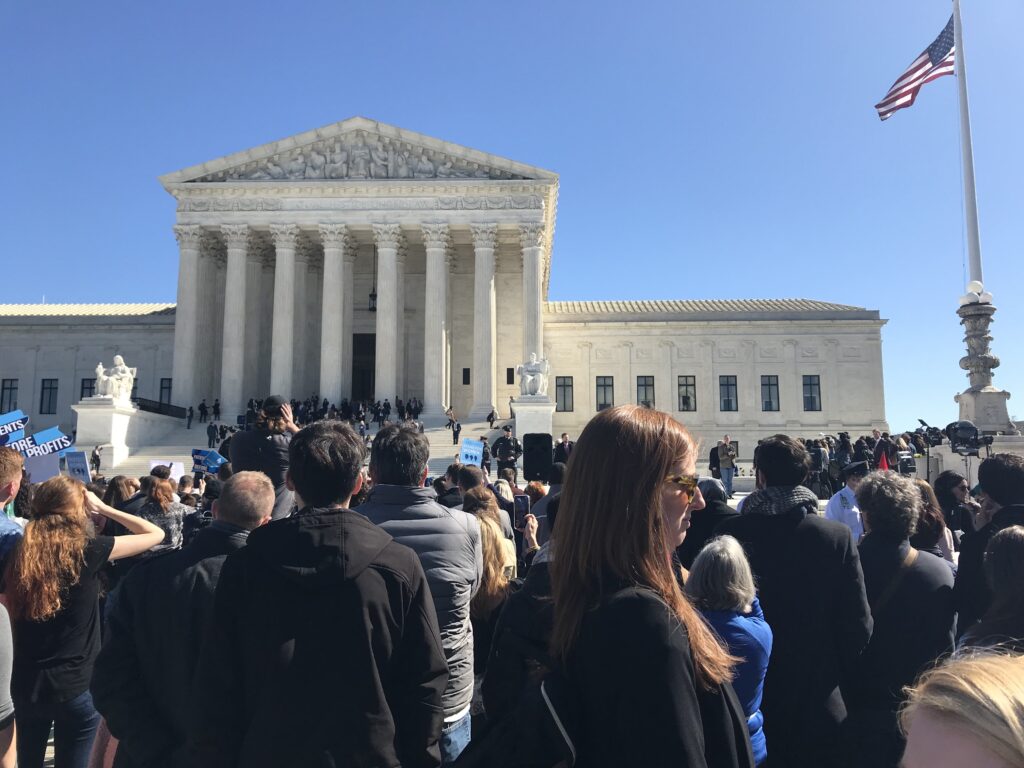
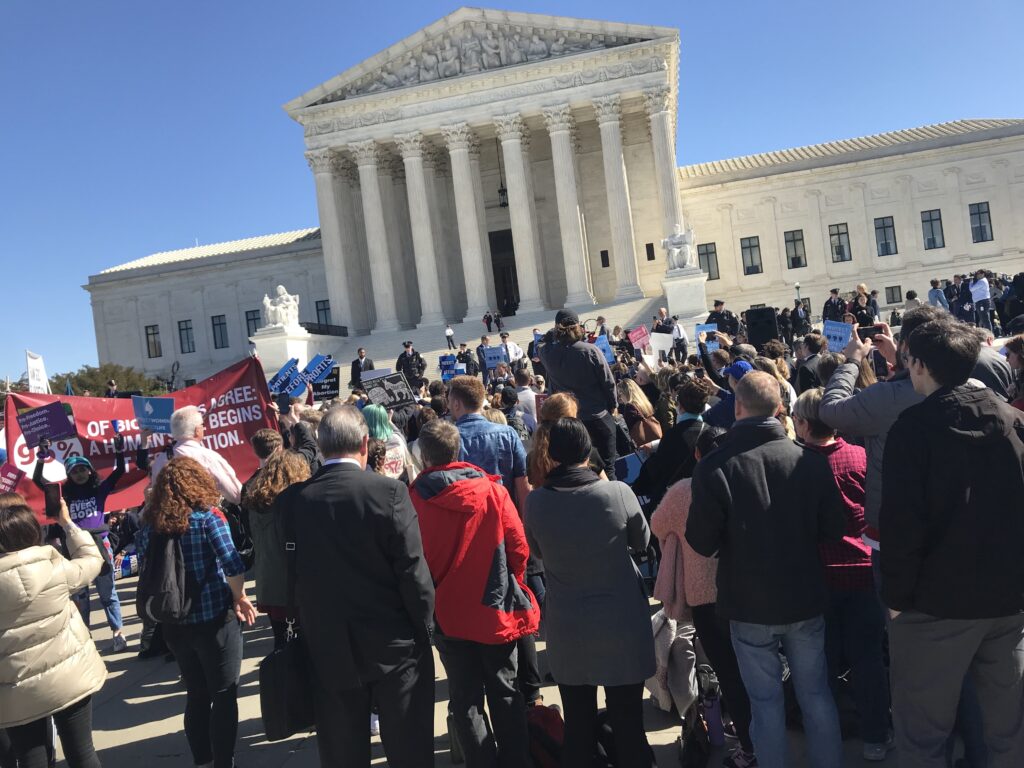
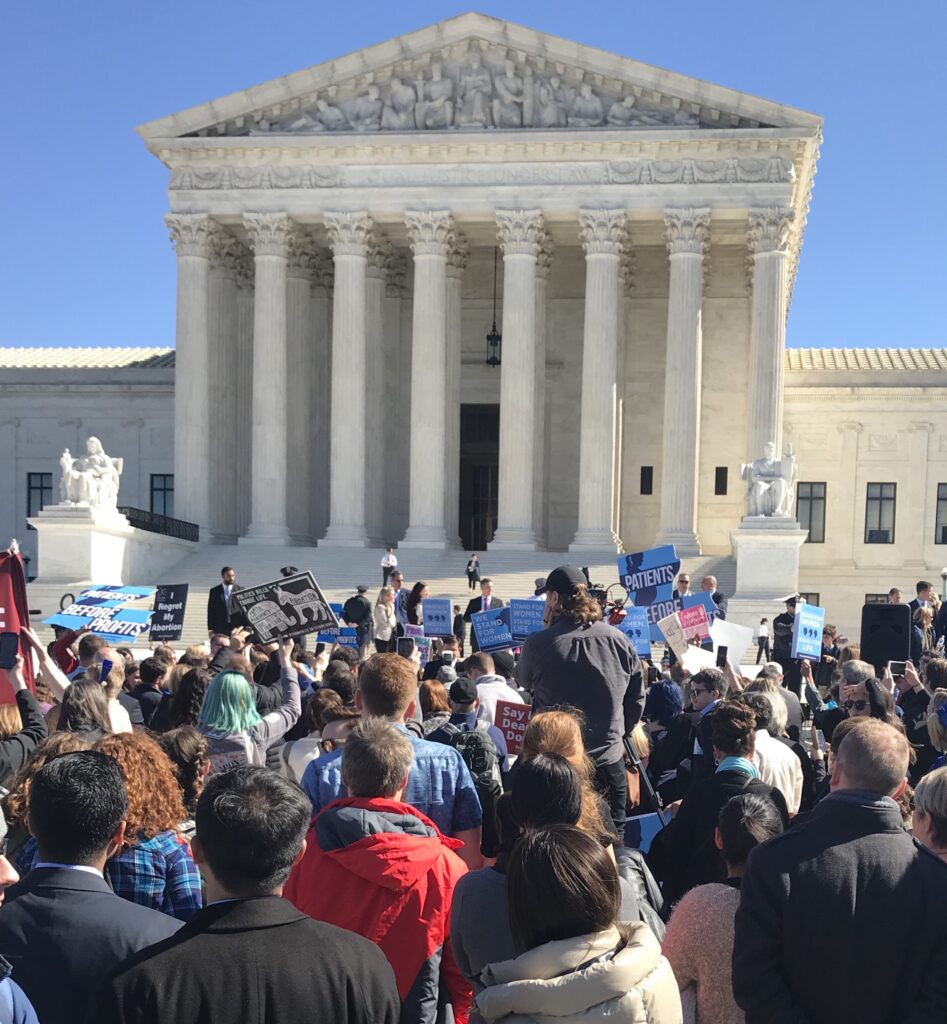
The debate between those who support the sanctity of all life, including the lives of those yet to be born, and those who defend abortion rights will rage for decades, perhaps indefinitely.
Wouldn’t it be beneficial to our country and to the entirety of all people in our country if we could at least remove some of the “rage” in areas where there should be an obvious agreement?
Both sides do, in fact, want to protect the health of women (even while we continue the debate on the interpretation of the “health of women” as it relates to the pregnant state).
Let us pursue reasonableness, logic, sound medicine, and consistent legal regulations and expectations across the medical and surgical industry as we debate these issues.
Even to those who are pro-choice, the “right to abortion” should not outweigh the responsibility to protect the safety of a woman seeking medical procedures, including the medical procedure of abortion itself.
Hope And Focus On Gospel Truth
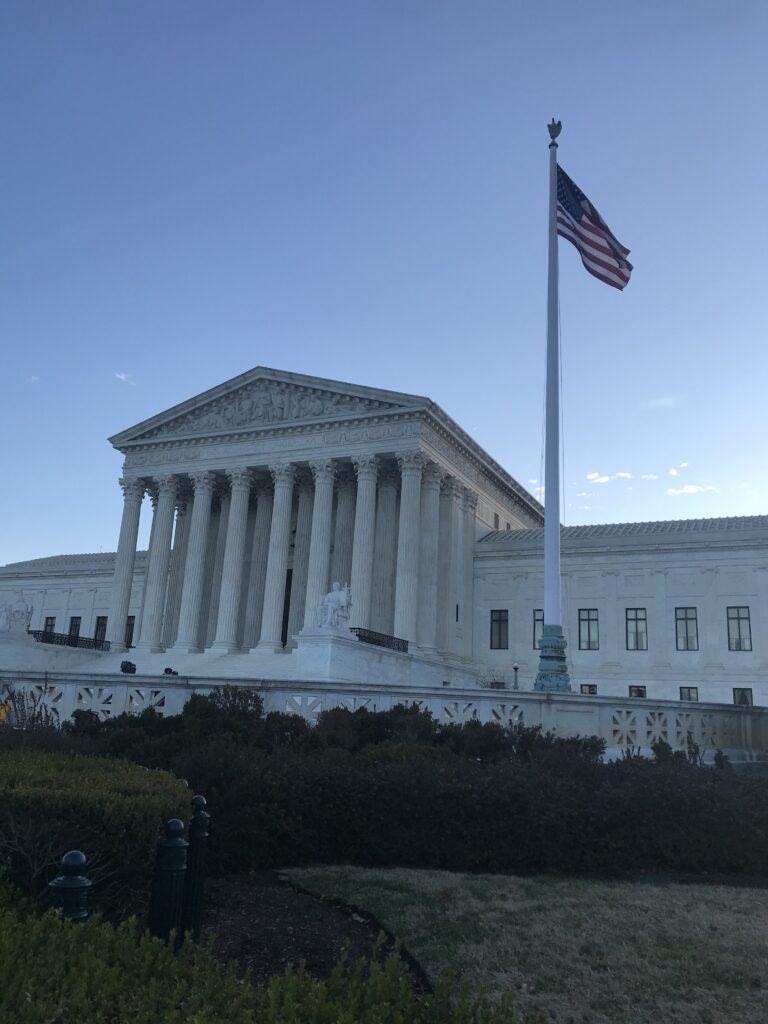
When my wife and I left the courtroom and walked out of the front doors of the Supreme Court building, we were face to face with the crowds of both sides of the abortion debate.
The emotion, passion, commitment to cause, anger, grief, fear, and even rage was evident on both sides.
It was a meaningful moment and one that caused personal pause as a man who tries to follow a Biblical worldview, who tries to follow the example of Christ.
I am newly struck by the realization that the worldview I embrace undeniably teaches that Christ loves each and every person on the steps of that Supreme Court building unconditionally, loving each one to the point of ultimate self-sacrifice.
I have felt a conviction again that we as believers must never forget the bigger message of hope, healing, restoration, and eternal truth of the Gospel, even as we take our stand for issues as important as the sanctity of life.
May we act in love as we pursue truth and as we stand for those who cannot stand for themselves.
We will continue to pray for wisdom, for our country, and for the protection of the most precious gift of life.
Kevin Weary MD
Noteworthy Follow Up
As stated in my opinion piece on the RHA. At the time of this writing, there are still absolutely zero scenarios in which medical providers are protecting the health or life of a mom by aborting a baby after the age of viability.
Thus there’s no medical explanation for the RHA law that gives legal right to abort babies after the point of viability.
In a prior opinion piece, a woman’s health/life is at risk after 24 weeks, simply induce labor or deliver by Cesarean section. There is no maternal reason to end the baby’s life before delivery.
The RHA is a clear example of protecting abortion rights beyond any medical reason. While legalizing the ending of a baby’s life that could potentially survive outside the mom at the time of abortion.




